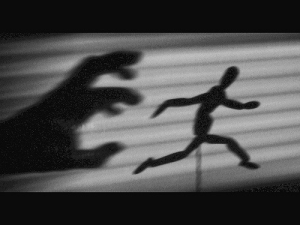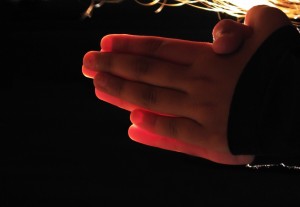Four Signs of Healthy Community
Jean Vanier knows something about community.
 Born in 1928 as the son of a high-ranking official in the Canadian government, Vanier traveled the world and served in the Royal Navy. Sensing that there must be something more to life, he resigned from his naval commission in 1950 to study theology and philosophy, eventually completing a Ph.D. at the Catholic University of Paris. Through his friendship with a Catholic priest, he renewed his faith in God and became deeply concerned about the plight of people with intellectual disabilities. In 1964, Vanier invited two disabled men to leave their institutions and move into his home. This led to the establishment of L’Arche (“The Ark”), a worldwide federation of residential communities where people with intellectual disabilities live, pray and worship together with caregivers in an atmosphere of friendship, mutuality and inclusion. Although L’Arche was founded as a Christian organization, the communities are open and welcoming to people of all religious beliefs. Vanier has studied, taught, and written extensively on topics related to faith, disability and community. He became a close friend and mentor to the late Christian author Henri Nouwen (1932-1996), who resided at a L’Arche community in Ontario, Canada for the last ten years of his life. In recognition of Vanier’s influence and achievements, he was awarded the Templeton Prize in 2015. (Previous winners of the Templeton Prize include Billy Graham and Mother Teresa of Calcutta.)
Born in 1928 as the son of a high-ranking official in the Canadian government, Vanier traveled the world and served in the Royal Navy. Sensing that there must be something more to life, he resigned from his naval commission in 1950 to study theology and philosophy, eventually completing a Ph.D. at the Catholic University of Paris. Through his friendship with a Catholic priest, he renewed his faith in God and became deeply concerned about the plight of people with intellectual disabilities. In 1964, Vanier invited two disabled men to leave their institutions and move into his home. This led to the establishment of L’Arche (“The Ark”), a worldwide federation of residential communities where people with intellectual disabilities live, pray and worship together with caregivers in an atmosphere of friendship, mutuality and inclusion. Although L’Arche was founded as a Christian organization, the communities are open and welcoming to people of all religious beliefs. Vanier has studied, taught, and written extensively on topics related to faith, disability and community. He became a close friend and mentor to the late Christian author Henri Nouwen (1932-1996), who resided at a L’Arche community in Ontario, Canada for the last ten years of his life. In recognition of Vanier’s influence and achievements, he was awarded the Templeton Prize in 2015. (Previous winners of the Templeton Prize include Billy Graham and Mother Teresa of Calcutta.)
Horrible Things Happen to Those Who Run Away
 In retrospect, one of the weirdest aspects of being in UBF during the 1980’s and 1990’s was listening to stories told by Samuel Lee. In his Sunday messages and extemporaneous announcements, he spun elaborate tales about people in the organization. Some of his stories contained elements of truth. In other cases, the facts were misunderstood, misrepresented or fabricated. He played the role of spiritual doctor, diagnosing people’s problems and attributing cause-and-effect relationships between their decisions and the happenings in their lives.
In retrospect, one of the weirdest aspects of being in UBF during the 1980’s and 1990’s was listening to stories told by Samuel Lee. In his Sunday messages and extemporaneous announcements, he spun elaborate tales about people in the organization. Some of his stories contained elements of truth. In other cases, the facts were misunderstood, misrepresented or fabricated. He played the role of spiritual doctor, diagnosing people’s problems and attributing cause-and-effect relationships between their decisions and the happenings in their lives.
Some of Lee’s tales seemed relatively harmless, but many of them were not. He often spoke of horrible things that happened to members who became disobedient or disloyal. People who left the organization were characterized as proud, deceived and greedy. They abandoned God’s calling and God’s mission to enjoy an easygoing comfortable life, and the result was always tragic.
What Not to Say to Someone Who Has Been Hurt By Church
 It is no secret that this website has become a place where people who have had bad experiences in University Bible Fellowship gather to share their stories. But this website is open to all, and anyone is free to write or comment. Those who want to defend UBF are welcome to share their thoughts as well, and even though the exchanges can sometimes look ugly, there are times when grace and compassion and love and mutual understanding can break through.
It is no secret that this website has become a place where people who have had bad experiences in University Bible Fellowship gather to share their stories. But this website is open to all, and anyone is free to write or comment. Those who want to defend UBF are welcome to share their thoughts as well, and even though the exchanges can sometimes look ugly, there are times when grace and compassion and love and mutual understanding can break through.
Scapegoating, Ignatian spiritual practice, and the subversive gospels of Passion Sunday and Good Friday
 The recent film Kill the Messenger is based on the true story of a reporter named Gary Webb who worked for a mid-sized newspaper during the 1990’s. By chance, Webb received a document revealing that the federal government supported a trafficker who brought large amounts of drugs into the United States. As Webb investigated the matter, he found evidence that the spread of crack cocaine, an epidemic that blighted American cities during the 1980s, was fueled by operatives of the CIA who sold the drug to support the military operations of the Contra rebels in Nicaragua.
The recent film Kill the Messenger is based on the true story of a reporter named Gary Webb who worked for a mid-sized newspaper during the 1990’s. By chance, Webb received a document revealing that the federal government supported a trafficker who brought large amounts of drugs into the United States. As Webb investigated the matter, he found evidence that the spread of crack cocaine, an epidemic that blighted American cities during the 1980s, was fueled by operatives of the CIA who sold the drug to support the military operations of the Contra rebels in Nicaragua.
Prayers for the Church
 The Bride of Christ could use some prayer right now. Here are some excerpts from The Book of Common Prayer. Will you agree with me on these?
The Bride of Christ could use some prayer right now. Here are some excerpts from The Book of Common Prayer. Will you agree with me on these?
For the Church
Gracious Father, we pray for the holy Catholic Church. Fill it with with all truth, in all truth with all peace. Where it is corrupt, purify it; where it is in error, direct it; where in any thing it is amiss, reform it. Where it is right, strengthen it.; where it is in want, provide for it; where it is divided, reunite it, for the sake of Jesus Christ your Son our Savior. Amen.
An Open Letter to the President of UBF
The following is an open letter to Dr. Augustine Sohn, President of University Bible Fellowship, from Joseph L. Schafer, dated March 2, 2015.
Dear Augustine:
Thank you for contacting me yesterday about my status in University Bible Fellowship.
For approximately two years now, the only messages I have received from your organization were requests to attend various meetings and reminders to submit annual chapter reports. I decided to ignore those requests because, for more than five years now, leaders of UBF have been unresponsive to my repeated pleas for dialogue about important matters that affect the health of the organization and the credibility of its gospel witness. My nonresponse was not retaliation. It was an indication that I had no clue how to proceed in our relationship, because my pleas went unheeded and sometimes were not even acknowledged. Perhaps you have heard the humorous saying: “Oh, I’m sorry. I forgot that I only exist when you need something.” I am sorry to say this, but that line accurately conveys my feelings toward UBF and its leaders right now.
Telling it to the Church, Part 3
Yes, the time has finally arrived. The moment that handfuls of you have been waiting for. After a two-year hiatus, we pick up the story that began with Telling it to the Church (Part 1) and Telling it to the Church, Part 2.
Oh, my, how the times have changed; so much has happened since then.
Be forewarned: this installment will be different.
 And rejoice, for today is your lucky day! You are the winner of Wonka’s Golden Ticket. Reach out your hand. With this V.I.P. pass, we’ll descend into belly of the beast, to the inner sanctum, that secretive world of UBF leadership that has never before seen the light of day.
And rejoice, for today is your lucky day! You are the winner of Wonka’s Golden Ticket. Reach out your hand. With this V.I.P. pass, we’ll descend into belly of the beast, to the inner sanctum, that secretive world of UBF leadership that has never before seen the light of day.
And this time, I will be naming names. Yes, today you will hear things that I have not yet shared with anyone, except for my wife and perhaps our dog.
And as I slept, I dreamed a dream…
Admin note: This is a short story titled The Pilgrims. It was contributed by Ryan Prins, a former student at Penn State, and originally published in 2009. We reprint it now because — let the reader understand.
Before me lay a vast desert. How long it had been since that wilderness had last seen rain, I could not say. Three years perhaps, or four. Long fissures reached like fingers across the clay-baked expanse. A few sun-scorched crags were the jealous residents of that wasteland. Allowing no creatures, no living things to share their kingdom, they were disturbed only by a light sand, swept by a fiery wind.
The theology of “Gross!”: What modern psychology can teach us about purity, disgust, love, and the gospel
 Back in January, I posted a sermon I delivered on Ephesians chapter 2. I wrote:
Back in January, I posted a sermon I delivered on Ephesians chapter 2. I wrote:
In these verses, Paul makes the surprising claim that the law – God’s law, which was given to Israel through Moses on Mount Sinai – created hostility between Jews and Gentiles and erected a wall, an insurmountable barrier, which had kept them apart. This is true. Because of their law, Jews were compelled to separate themselves from non-Jews. They had to avoid all physical contact. Jews could never have fellowship or eat with Gentiles, because Gentiles’ food and utensils and homes and bodies were defiled. For Jews, the mere thought of eating with Gentiles would have made them feel physically ill.
Neuropsychology has shown that most of the judgments that people make in regard to morality – deciding what behaviors are right or wrong – are not based on careful, rational thought. Rather, these decisions come from the gustatory cortex, the part of the brain that helps us to detect bad smells and warns us not to eat certain foods because they are unwholesome or contaminated. I learned about these findings through a fascinating book titled The Righteous Mind by Jonathan Haidt.
Reflections on Today’s Daily Bread
We, the administrators of UBFriends, were deeply moved by this morning’s Daily Bread passage and accompanying commentary that appeared on ubf.org. Because of our laziness, pride and poor spiritual conditions, we had given up writing our Daily Bread reflections for a very long time. But today we repented because the DB page was so excellent! It seemed so fresh, so relevant, as though the author was personally writing it for us and for all our readers! So we decided to reproduce the DB page here. And we invite you, as the Spirit leads, to share your thoughts and reflections in the Comments section below. Please meditate deeply on this and write about how it applies to you. We look forward to hearing from you.




Last 30 Comments